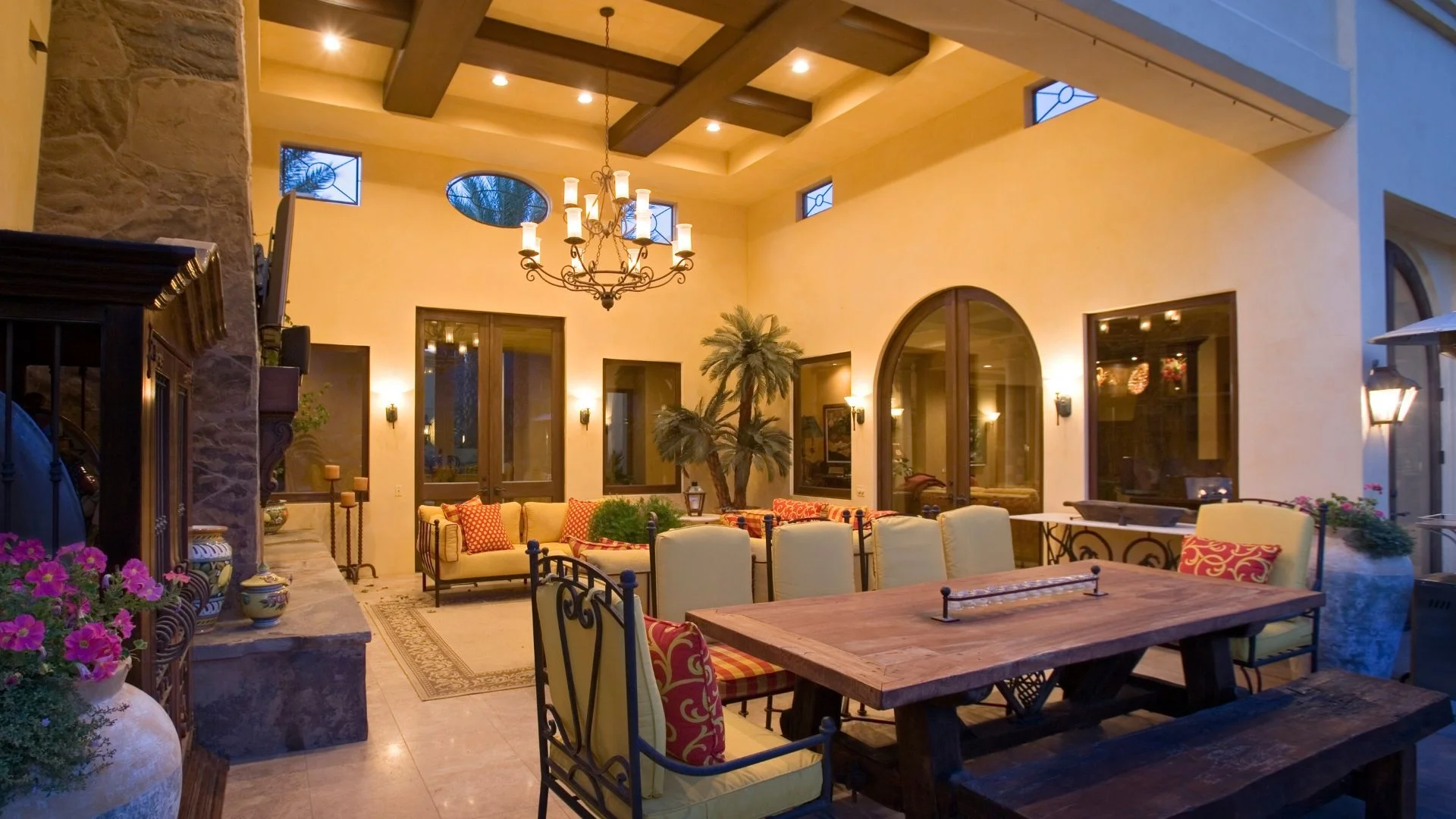Rising Affluence, Minimalist Aesthetics, and Smart Home Integration Fueling Growth in Japan’s Interior Design Sector
According to a recent report by Renub Research, the Japan Interior Design Market is projected to reach US$ 9.06 billion by 2033, up from US$ 6.39 billion in 2024, registering a CAGR of 3.95% during 2025 to 2033. The market is undergoing significant transformation as evolving consumer preferences, advanced materials, and rising investments in real estate and hospitality boost demand for customized and functional living spaces.
Cultural Heritage and Modern Design Harmonize in Japan’s Interior Spaces
Japan’s unique interior design market is rooted in centuries-old traditions like Zen aesthetics, Wabi-Sabi, and Shoji screen partitions, now seamlessly blended with Western-style contemporary living. As more Japanese consumers and businesses opt for harmonious, sustainable, and functional interiors, interior designers are merging modernity with local craftsmanship. This cultural duality sets Japan apart in the global interior design landscape.
From tatami mats and wooden elements to neutral color palettes and space-saving designs, Japan’s market demonstrates an exceptional capability to blend minimalism with comfort, appealing to both domestic and international clients seeking serene and efficient interiors.
Residential Segment Continues to Dominate Interior Design Demand
The residential segment remains the largest revenue generator in the Japan interior design market. With urbanization and the rising trend of single-person households, there is increased demand for compact, multifunctional, and aesthetic living spaces. Renovations, particularly among Japan’s aging housing stock, also contribute significantly to the sector's growth.
Notably, post-pandemic lifestyle changes have intensified interest in home offices, hybrid working environments, and wellness-centric home designs, further fueling the residential interior design boom. Modular furniture, eco-friendly paints, smart lighting, and air purification systems are now commonly integrated into home interiors.
Smart Homes and IoT Integration Driving Innovation
Japan’s technological advancements are deeply intertwined with its design industry. The integration of smart home technologies and IoT-enabled devices is transforming interiors, making them more responsive, energy-efficient, and user-friendly. Smart lighting, automated curtains, voice-controlled appliances, and adaptive climate systems are now crucial elements of modern interior layouts in urban Japanese households and commercial properties alike.
The rise of AI-driven design software, virtual reality walkthroughs, and 3D visualization tools has also enabled designers to deliver more immersive and personalized solutions to clients, helping increase customer satisfaction and project efficiency.
Hospitality and Commercial Sectors Offer Lucrative Opportunities
The hospitality industry, especially in Tokyo, Kyoto, and Osaka, is increasingly investing in luxurious yet culturally authentic interior designs to attract both domestic and international travelers. Boutique hotels, cafés, and ryokans are focusing on aesthetic storytelling, creating immersive guest experiences that reflect Japanese traditions.
Meanwhile, corporate office spaces and retail showrooms are embracing open-plan concepts, biophilic design, and ergonomic layouts. These spaces are crafted to enhance productivity, foster creativity, and appeal to environmentally conscious clients, especially in urban hubs like Yokohama and Nagoya.
Sustainability and Eco-Conscious Designs at the Forefront
Environmental awareness is shaping every layer of the Japan interior design market. Rising concerns over carbon emissions, indoor air quality, and resource conservation have pushed designers to embrace green building certifications, FSC-certified wood, recycled materials, and energy-efficient lighting. Additionally, government support for green construction and sustainability regulations is propelling adoption of eco-friendly interior solutions.
Natural ventilation, daylight optimization, and low-VOC paints are among the many components now prioritized in both residential and commercial projects. These eco-conscious practices not only align with global climate goals but also enhance occupant health and comfort.
Urbanization and Real Estate Development: A Foundation for Growth
Japan’s continued urban expansion and infrastructure development projects provide a strong base for interior design services. The government’s push for urban renewal, smart cities, and tourism infrastructure upgrades is encouraging investments in hotels, residential complexes, and retail spaces — all of which require expert interior planning and execution.
Furthermore, aging demographics and increased disposable income are key drivers of home renovation trends, particularly among the elderly who seek more comfortable, safe, and accessible interiors. This has led to growing demand for universal design features that accommodate all age groups and physical abilities.
Key Challenges: Labor Shortage and Cost Pressures
Despite the positive outlook, Japan’s interior design industry faces challenges such as skilled labor shortages, rising material costs, and the increasing complexity of client expectations. Additionally, small and medium design firms often lack the capital to invest in digital tools and advanced materials, impacting scalability and innovation.
To address these issues, companies are turning to outsourcing, upskilling initiatives, and strategic partnerships with global brands and tech providers to ensure service quality and cost efficiency.
Competitive Landscape: Blend of Traditional Studios and Modern Tech Players
The Japan interior design market is characterized by a mix of traditional design studios, architecture firms, and emerging tech-driven startups. Firms that can combine cultural authenticity, personalized service, and smart technology are best positioned to lead the market. Strategic partnerships, digital transformation, and diversification of design services are increasingly shaping market leadership.
Prominent players are also offering 360-degree design solutions, including space planning, furniture selection, lighting design, materials procurement, and project management, helping them capture larger market share and maintain long-term client relationships.
Forecast: Bright Prospects Amid Rising Customization and Lifestyle Evolution
As Japan continues to embrace modern living, sustainability, and smart technology, the interior design market is set to thrive. With consumer preferences shifting towards personalized, efficient, and health-conscious interiors, the industry will witness robust demand from homeowners, businesses, and the hospitality sector.
According to Renub Research, strategic innovation and a blend of tradition with technology will define the next chapter of growth in the Japan Interior Design Market, creating substantial opportunities for designers, suppliers, and investors alike.
New Publish Report:
- Japan Solar Panel Market Report & Forecast 2025–2033
- Japan Inflammatory Bowel Disease Treatment Market Overview 2025–2033
- Japan Water Heater Market Overview 2025–2033
About the Company
Renub Research is a Market Research and Consulting Company with more than 15 years of experience, especially in international Business-to-Business Research, Surveys, and Consulting. We provide a wide range of business research solutions that help companies make better business decisions. We partner with clients across all sectors and regions to identify their highest-value opportunities, address their most critical challenges, and transform their businesses.
Our wide clientele includes key players in Healthcare, Travel & Tourism, Food & Beverages, Power & Energy, Information Technology, Telecom & Internet, Chemicals, Logistics & Automotive, Consumer Goods & Retail, Building & Construction, and Agriculture. Our core team comprises experienced professionals with graduate, postgraduate, and Ph.D. qualifications in Finance, Marketing, Human Resources, Bio-Technology, Medicine, Information Technology, Environmental Science, and more.
Media Contact
Company Name: Renub Research
Contact Person: Rajat Gupta, Marketing Manager
Phone No: +91-120-421-9822 (IND) | +1-478-202-3244 (USA)
Email: rajat@renub.com
To explore the full report, visit: Japan Interior Design Market Report






